Sunday Feb 15, 2026
Sunday Feb 15, 2026
Wednesday, 13 March 2019 00:00 - - {{hitsCtrl.values.hits}}
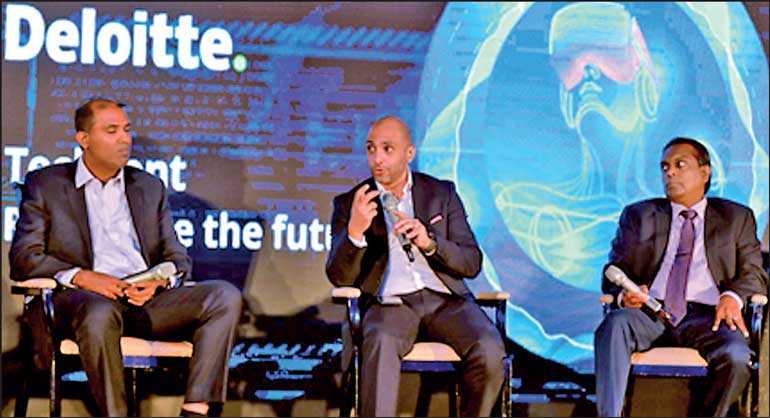
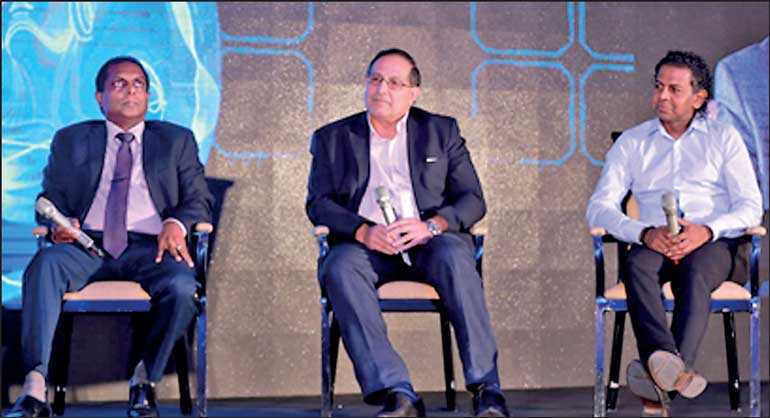
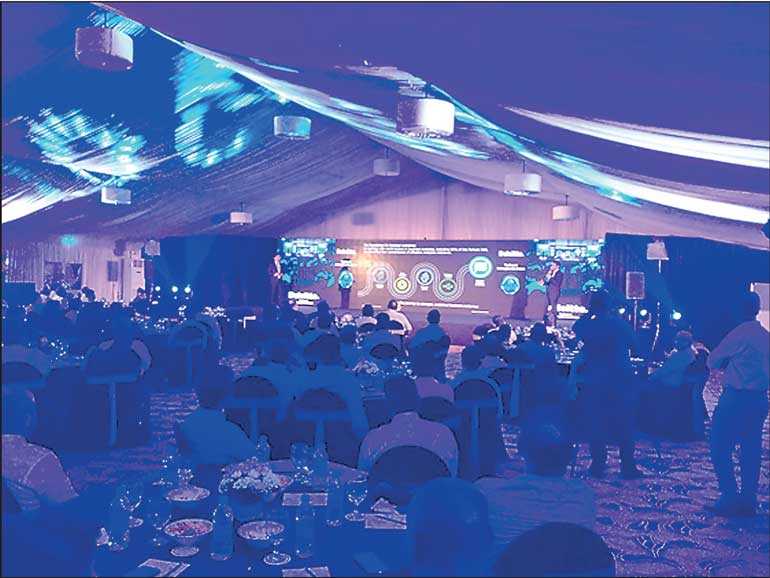
Advances in technology, artificial intelligence (AI), and new communication technologies are fundamentally changing how work gets done, who does it, and how it influences business and society.
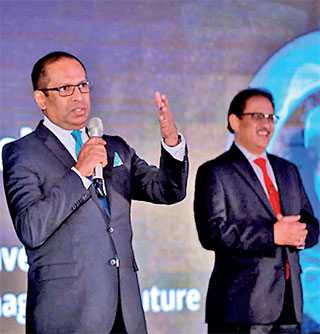 |
Consulting Advisor Malith Gunasekara |
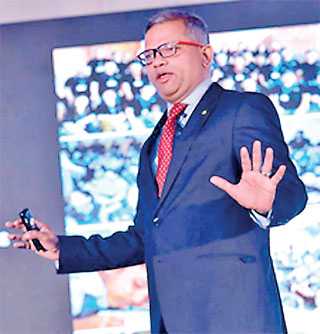 |
Deloitte Digital Partner (Consulting) Rakesh Barik |
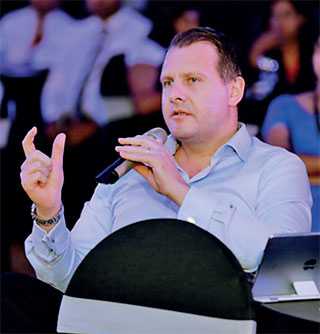 |
Participants taking on the panellists |
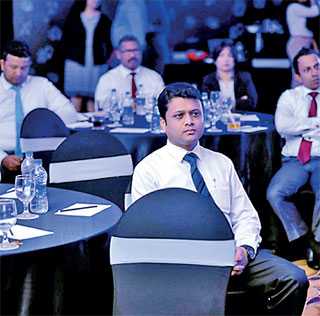 |
Participants during a brief Digital and Cyber Risk session |
Exponential technologies have changed the way businesses are run around the world. The good news is that technological advances can open up new opportunities for businesses to grow rapidly and also have a positive impact on society, provided organisations understand and embrace these opportunities holistically. These were some of the topics that Deloitte discussed in a knowledge sharing session titled ‘Techvent 2019’ in Sri Lanka.
Drawing from Deloitte’s recently launched global report ‘Tech Trends 2019: Beyond the Digital Frontier’, the discussions were about new technologies, innovations, and trends that are digital and touch the human, laying emphasis that companies must work methodically to sense new possibilities and define their ambitions for tomorrow.
Speaking at the event, Deloitte India Partner Rakesh Barik said, “Digital reality, cognitive technologies, blockchain, AI, and digital forces have impacted the entire value chain for businesses - sales, marketing, supply chain, customer service, HR functions have now even entered the realm of fine arts, algorithm-generated portraits, and architecture designs. Enterprises have embarked on a journey to provide differentiated offerings on smartphones, using chatbots for customer service, building marketing engines towards deepening relationships with customers, optimising supply chains, automating repetitive work, etc. Traditional departments are on a journey to reskill to be savvy in relevant technologies, and ways of working in organisations are changing dramatically. While over the last few years analytics, mobile, cloud, automation technologies have steadily disrupted business and IT, the story continues to evolve and new technologies like cognitive, blockchain, digital reality (AR, VR, IOT, etc.) have taken up the new role of the ‘disruptor’. Truly indeed, every company today is a technology company.”
Over recent years, Sri Lanka has seen a greater focus on public-private partnerships, which has inspired confidence in the market and helped attract substantial Foreign Direct Investments. Industry 4.0 has arrived at an opportune time for the country, particularly as the local IT and BPM sectors are expanding and making their mark on the world economy, and the stage is set to position the country as an information technology hub.
The key themes of the panel discussion included digital transformation and the preparedness for the new digital era, transforming entities into insight-driven organisations and building a scalable and robust enterprise architecture.
The discussion ended emphasising that business and technology teams should work together to deliver faster outcomes without sacrificing scalability, reliability, security, and maintainability for the enterprise. A digital mindset will be key to ride the wave of the 4th Industrial Revolution.